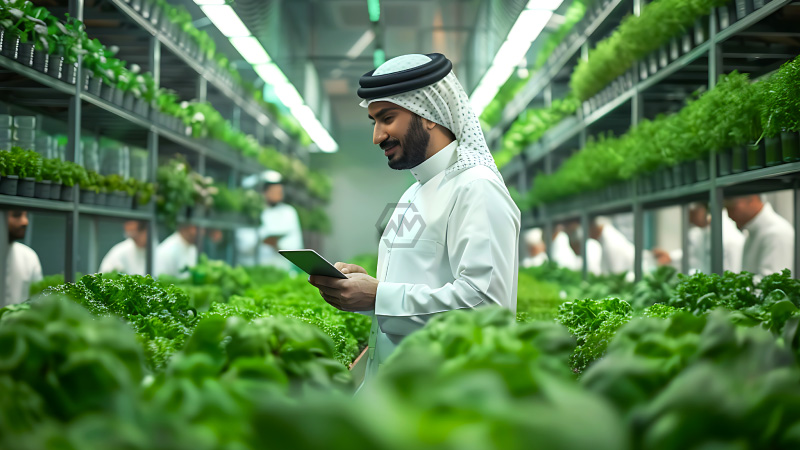- The Middle East is leveraging AI, IoT, and smart irrigation to combat climate challenges in agriculture.
- Countries like Israel, Saudi Arabia, and the UAE are leading in digital farming advancements.
- Technologies like hydroponics, satellite imaging, and big data are optimizing resource use and sustainability.
The digital transformation of irrigated agriculture in the Middle East is revolutionizing how food is produced in arid regions. With rising temperatures and water scarcity threatening traditional farming, innovative solutions such as IoT-enabled irrigation, AI-powered analytics, and satellite monitoring are reshaping agricultural practices.
Government initiatives and private sector investments are accelerating the adoption of smart agriculture. Israel has become a global leader in agricultural technology, while Saudi Arabia and the UAE are integrating advanced farming methods to increase self-sufficiency.
Smart Farming in the Middle East: A Digital Revolution in Agriculture
With climate change intensifying, the Middle East faces growing challenges in food production. Rising temperatures, erratic rainfall, and declining water reserves necessitate a shift toward technology-driven agriculture. Countries are now investing in smart irrigation systems, precision farming, and AI-driven analytics to enhance efficiency and resilience.
IoT sensors play a crucial role in monitoring soil conditions, crop health, and irrigation needs in real time. These tools enable farmers to make data-driven decisions, reducing water waste and optimizing yield. Smart irrigation systems, which match water supply to specific crop requirements, are particularly vital in the region’s dry climate.
Satellite imagery and drones are transforming agricultural monitoring, offering insights into crop growth, disease outbreaks, and water distribution. This data-driven approach not only boosts productivity but also minimizes resource depletion. AI-powered platforms analyze vast amounts of agricultural data, predicting trends and optimizing farming strategies.
Countries like Israel and the UAE have successfully integrated hydroponics and vertical farming, maximizing food production in limited spaces. Meanwhile, Saudi Arabia’s investments in desert farming technologies demonstrate the potential for self-sufficiency. As these innovations expand, the region moves closer to sustainable food security.
Digital agriculture is no longer a futuristic concept but a necessity for the Middle East. By integrating technology into farming, the region is addressing climate challenges, improving water efficiency, and enhancing food security. As innovations continue to evolve, the future of agriculture in arid environments looks increasingly sustainable.
“The future of agriculture lies in the marriage of technology and sustainability.” — Sundar Pichai



